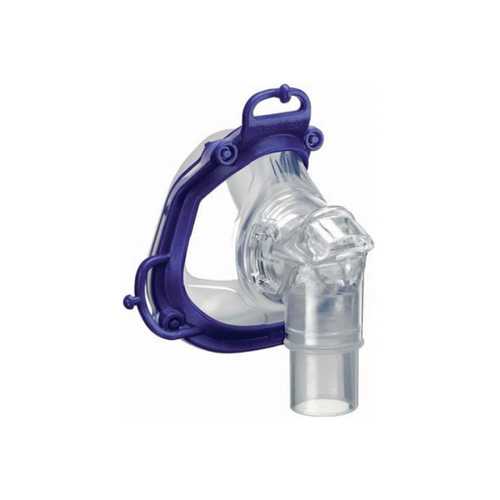hospital nasal mask

short description
- Resmed Hospital Nasal Mask
- Designed for patient use, cost-effective for a Hospital environment.
- Easy to use, Flexible, Efficient and comfortable.
description
At PORTEA, we offer rental and sale services for equipment that cater to nasal mask-dependent patients. Count on us to assist in choosing the ideal product and administration range tailored to your unique needs.
Introducing ResMed’s Hospital Nasal Mask, designed for single-patient usage. It is available in medium and large sizes and ensures a comfortable fit across diverse patients. The masks are disposable, eradicating cross-contamination worries and costs linked to disinfection.
Featuring a patented dual-wall seal and advanced cushion technology, our mask innovation guarantees swift and effective treatment delivery. Rely on Portea for superior care solutions.
features
- Nasal mask suited for CPAP, bi-level pressure treatment.
- Non–invasive ventilation therapy
- Single-patient use only
- Maximum seven days.
specifications
- Exhalation vent: Provides adequate CO2 washout
- Pressure port: single port for measuring pressure
- 3600 rotating elbow with swivel: Allows clinician to select the most appropriate tube position
- Silicon single wall cushion: Provides a comfortable, reliable, and effective seal.
faqs
1. What is a nasal mask for?
Nasal masks are designed for individuals with sleep apnea who predominantly breathe through their nose. They offer several advantages: being less bulky than full face masks, suitable for those sensitive to claustrophobia, and providing a secure fit by covering a smaller facial area. These attributes make nasal masks preferred among nose breathers seeking effective and comfortable sleep apnea therapy.
2. What is another name for a nasal mask?
Another name for a nasal mask is the “oronasal mask.” This type of mask is worn solely over the nose and is characterized by its rounded, triangular dome shape, designed to fit the facial contours of most users snugly.
3. What is the difference between a nasal mask and a nasal cannula?
A nasal mask and a nasal cannula are both devices used to deliver oxygen, but their applications and advantages differ. A nasal mask covers the nose, offering consistent oxygen flow with higher recommended rates (6-10 litres per minute). In contrast, a nasal cannula is a tube that sits below the nose, providing oxygen at lower flow rates. Some patients prefer masks for their steady oxygen delivery and higher flow rates, making them a favoured choice over cannulas.
4. What is the difference between a full-face mask and a nasal mask?
Full-face and nasal masks differ in the coverage they provide on your face. A nasal pillow mask sits at the nostril entrance, a nasal mask covers the nose, and a full face mask encompasses both the nose and mouth. While each type has size and style variations, these distinctions in coverage define their main differences.
5. When would you not use a nasal mask?
A nasal mask is not ideal for individuals who primarily breathe through their mouth. A nasal mask might not provide optimal results if you face issues like frequent sinus congestion due to allergies, colds, a deviated septum, or recurring nosebleeds. In such cases, considering other mask options could be more suitable.
Doctor Consultation
Nursing
Physiotherapy
Trained Attendant
Elder Care
Mother & Baby Care
Lab Tests
Medical Equipment
Speciality Pharma
Critical Care






